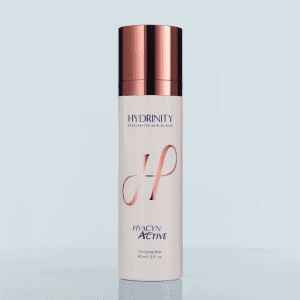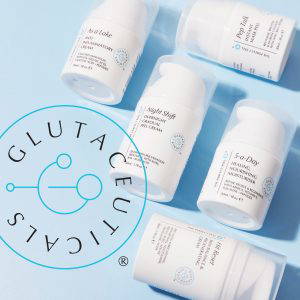What are Peptides in Your Skin?
Peptides are hailed an anti-ageing must ingredient in skincare, but do you know what they are and how they work? Pathing their way into skincare due to their ability in helping manage wrinkles and reverse the signs of ageing.
What are Peptides in Your Skin?
To understand peptides, you must understand the role of collagen.. Collagen is a protein comprised of long segments of amino acids arranged like a chain and collagen is the most abundant protein in the human body.
The role of collagen:
- Collagen provides a foundation and thickness for skin
- helps give our skin strength and elasticity, along with replacing dead skin cells.
- Over the age of 30 our collagen level starts to deplete which thins our skin causing wrinkles.
When collagen breaks down, short segments of amino acids are formed. These are the tiny proteins and active molecules known as PEPTIDES.
So, why do we use Peptides in skincare?
Different types of peptides have different effects, from smoothing wrinkles or repairing barrier function to increasing firmness and hydration.There are three main ways peptides claim to be anti-ageing
-
Send ‘massages’ to your skin to produce more collagen
When collagen is depleted by both age and environmental factors (the main one being sunlight) it is not as easily replaced. As the collagen deteriorates, it produces certain peptides which send a ‘massage’ to your skin that collagen has been lost and needs replacing. So, by applying peptide skin care topically it tricks the skin in thinking collagen has been lost and therefore more needs to be generated. So, effectively peptide skin care can trigger the production of collagen. The most popular signalling peptide used is Matrixyl (palmitoyl pentapeptide).
-
Deliver Copper to the Skin
When copper is attached to a peptide, the peptide can deliver copper to the living layers of the skin. There is research showing that copper is an effective agent in skin healing which is why it has been used for years to treat chronic wounds. Copper peptide promotes collagen and elastin production and also acts as an antioxidant.
-
Neuropeptides
Neuropeptides might block transmission of signals from nerves to your facial muscles acting in a similar way to Botox. In particular, the neuropeptide called argireline. However, there is no to little scientific data backing these claims.
Do they live up to the hype?
Peptides are new to the skincare market and therefore, new studies are coming out all the time about their effectiveness. With any anti-ageing ingredient, they all have benefits and limitations so having realistic expectations is important. Signal peptides and copper peptides seem to have the most scientific backing yet I personally need more scientific research on neuropeptides to show their worth. It is also worth noting that in order for peptides to work they have to be stabilised correctly and be contained in a product that penetrates the skin. Otherwise, they will simply sit on the skins surface and have no benefit.
Recommendations

NIOD | Copper Amino Isolate Serum 15ml priced at £38.00

The Ordinary | Matrixyl 10% + HA 30ml priced at £9.60

Julia Hunter Skin Therapy Maximal Repair Wrinkle Filler – available via in-clinic or online consultation form.



